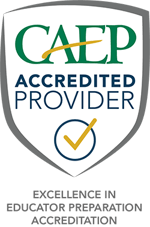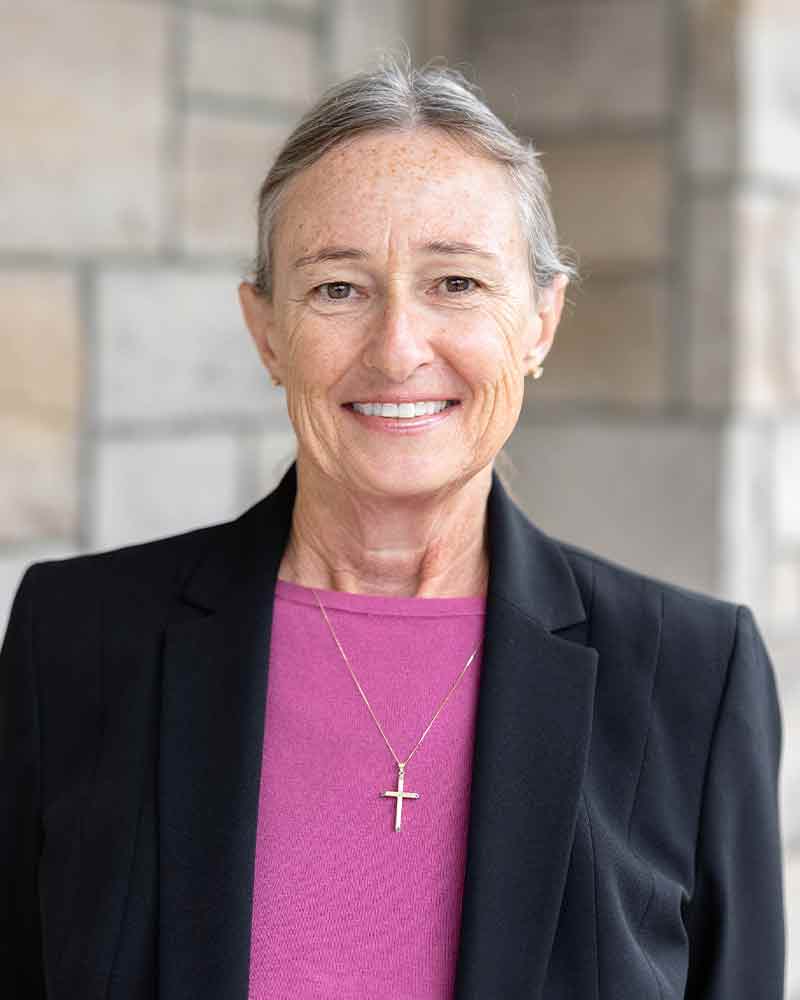Master of Education in educational leadership (M.Ed.)
The Master of Education in educational leadership is a licensure-seeking program that prepares educators to design effective curriculum and utilize data to improve student learning and increase school success. Students obtain the skills and expertise to become an innovative and effective leader in their classroom, school or district.
Upcoming Start Dates:
- Online:
-
Jan. 20, 2026
Want More Info?
Program Benefits
- Complete your degree online in 16 months with no residency requirements.
- Continue to work and focus on other priorities while earning your degree, taking one course at a time with all materials delivered to you.
- Utilize a built-in support system and complete your degree alongside others who are working toward similar goals through Trevecca’s cohort model.
- Learn in a collaborative environment with small class sizes.
- Learn from faculty who possess the highest degrees in their fields and have relevant and valuable real-world experience.
- Become eligible for the Instructional Leadership License (ILL-B).
What to Expect
Trevecca’s Master of Education in educational leadership is a licensure-seeking program endorsed by the Tennessee Department of Education. With your M.Ed., you’ll be positioned to help both students and teachers become more successful in the classroom. The coursework prepares future school leaders to evaluate curriculum and instruction. You’ll learn effective staff management, instructional evaluation, modern education technologies and inclusive best practices for diverse classrooms and schools. You’ll also learn leadership skills and innovative strategies that will allow you to become a forward-thinking role model in your classroom, school or district.
Why Choose Trevecca?
 Founded in 1901 and a leader in online education for more than two decades, Trevecca helps students discover and pursue an individual calling by providing innovative instruction; cultivating a supportive, Christ-centered community; and establishing relationships that open doors.
Founded in 1901 and a leader in online education for more than two decades, Trevecca helps students discover and pursue an individual calling by providing innovative instruction; cultivating a supportive, Christ-centered community; and establishing relationships that open doors.
 Recognized nationally and locally for academic quality, Trevecca has earned a reputation for providing the world with servant leaders, problem solvers and difference makers. Trevecca’s holistic approach to education encompasses intellectual, social, emotional, physical and spiritual growth.
Recognized nationally and locally for academic quality, Trevecca has earned a reputation for providing the world with servant leaders, problem solvers and difference makers. Trevecca’s holistic approach to education encompasses intellectual, social, emotional, physical and spiritual growth.
 Trevecca’s School of Education degree programs meet the rigorous national standards for education preparation established by the Council for the Accreditation of Educator Preparation (CAEP). CAEP promotes excellence in educator preparation through content and pedagogy, clinical partnerships and practice, candidate recruitment, progression and support, program impact, quality assurance and continuous improvement.
Trevecca’s School of Education degree programs meet the rigorous national standards for education preparation established by the Council for the Accreditation of Educator Preparation (CAEP). CAEP promotes excellence in educator preparation through content and pedagogy, clinical partnerships and practice, candidate recruitment, progression and support, program impact, quality assurance and continuous improvement.
Course Descriptions
Get details on all the courses you’ll complete as you work toward this degree at Trevecca.
Read MoreHere’s a look at the approximate tuition rates you could expect for this program at Trevecca, including the cost per credit hour and the total tuition expense for the full degree program. Please note that rates and fees are subject to change.
Here’s a look at the approximate tuition rates you could expect for this program at Trevecca, including the cost per credit hour and the total tuition expense for the full degree program. Please note that rates and fees are subject to change.
Cost/Credit Hour$530 |
Hours30 |
Tuition Cost*$15,900 |
*$150 Student Resource Fee assessed per course. $150 course material cost per course.
- Admissions
- Licensure
Admissions Requirements
- Have earned a bachelor's degree from an institution accredited by a CHEA-recognized regional accrediting agency or the Association for Biblical Higher Education. Students who do not meet these degree requirements may be conditionally accepted in accordance with the Conditional Admission Policy.
- Need to have 3 years of teaching experience.
- If seeking administrative licensure, you must have an active teaching license as well.
Getting Started
- Complete the online application (it's free!).
Need help applying? Read the step-by-step instructions here! - Fill out FAFSA to be considered for financial aid.
- Request a copy of your official transcript from your undergraduate institution.
- An admissions counselor will contact you with the next steps.
- Provide photocopy of government-issued identification (e.g., driver's license, state ID, military ID, passport). This requirement ensures that Trevecca complies with the U.S. Department of Education expectations for student verification. (This is only required for students enrolled in an online program.)
Graduates from this program may qualify for the Instructional Leadership license (ILL). Requirements in Tennessee begin with the following process:
- Complete required coursework in the Educational Leadership program.
- Pass state-required test (School Leaders Licensure Assessment – PRAXIS SLLA 6990).
- Request ETS to send score to Trevecca Nazarene University.
Career Opportunities
With a Master of Education in educational leadership, you’ll be ready to advance your career and tap into higher earning potential. When combined with your work experience, your degree will position you to be competitive in roles like these:
- Principal
- Vice principal
- Curriculum developer
- College professor
- School or district administrator
- Educational consultant
- Educational policy developer
"I have been a teacher for 21 years and recently entered into a leadership position. The leadership program helped me in more ways than one as I began navigating my first time out of the classroom. This program is a must for anyone with their sights on educational leadership roles."
Our Faculty
-

Peggy Druyor
Adjunct Faculty
-

Stephanie Goff
Associate Professor & Director of Admin Liscn Programs
Read Full BioDr. Stephanie Goff serves a dual role as the Director of Administrative Licensure Programs, which include the M.Ed. in Educational Leadership and the Ed.S. in Accountability and Instructional Leadership, and an Associate Professor in both ...
-

Anna Harris
Adjunct Faculty
-

Holly Hayse
Adjunct Faculty
-

Tavia McLeod
Adjunct Faculty
Dr. Tavia McLeod is an Adjunct Professor in the School of Education. Her PK-12 education experience includes special education and instructional leadership. She earned an M.Ed. in special education from Tennessee State University and an endorsement ...Read Full Bio -

Rebecca Owens
Adjunct Faculty
Course Descriptions
Get details on all the courses you’ll complete as you work toward this degree at Trevecca.
Field Experience I for School Leaders
EDU 6001
This field experience is conducted during the first semester of the program. Specifically, candidates are expected to develop a resume, write a personal mission statement and autobiography, and familiarize themselves with various aspects of school governance and the duties of school officials. Candidates are expected to focus on employment processes/practices in their school system/school, sound decision-making practices, the delivery of professional development, and organizational climate. Creation and implementation of Professional Learning Communities is discussed.
Leadership for Instructional Effectiveness
EDU 6010
Candidates differentiate between administration, management, and leadership within the school setting. The roles of the local, state, and federal levels of government are considered and the duties of school superintendents (directors), school boards, principals, and assistant principals are delineated. Current issues facing schools, including performance-based standards and student achievement, are presented. Attention is given to the historical context of American education. Candidates are expected to reflect on their professional goals and mission.
Decision Making for Instructional Improvement
EDU 6020
Candidates examine organizational mission, strategic planning, and core beliefs as key elements within the school framework. The role of the school leaders in establishing a vision, a sense of community, and a positive learning culture that facilitates student achievement is explored; models used by effective school leaders are presented. Attention is also focused on teacher recruitment, induction, professional development, and personnel evaluation systems - both formative and summative. The use of data in assessing student learning is emphasized.
Field Experience II for School Leaders
EDU 6002
This second field experience is conducted during the second semester of the program. Candidates are expected to develop an understanding of Common Core standards, curriculum, assessment, and best teaching practices. Furthermore, candidates are expected to explore issues related to the legal, ethical, financial and political contexts of schools or matters associated with the growing pluralism and diversity of American schools. Observation of and interaction with school leader(s), along with community and/or person(s) of ethnic and social diversity are expected.
Curriculum for Instructional Leaders
EDU 6030
Candidates integrate information gathered from research, reports, assessments, standards, surveys, and best practices into effective leadership of the instructional program. Within the structure of local and state requirements, the methods and processes for understanding and implementing this information into an effective instructional program at the school level are explored and defined.
Law, Ethics, and Diversity for School Leaders
EDU 6035
Candidates examine the legal and regulatory mandates as outlined by the local school district, the state, the federal government, and the courts. Emphasis is on the legal rights and responsibilities of teachers, administrators, and students. Additional emphasis is placed on the following: responding to diversity for the improvement of instruction, political influences and implications, moral and ethical responsibilities of schools, special education laws, and school finance procedures.
Field Experience III for School Leaders
EDU 6003
This field experience is conducted during the third semester of the program. Specifically, candidates are expected to develop a thorough understanding of the change process, analysis of data, implications from data analysis, instructional improvement and the involvement of all stakeholders in the school improvement planning process. Furthermore, the course includes responding to diversity for the improvement of instruction, for increased student learning, and for a positive school climate, specifically in these areas: ethnicity/race, socioeconomic, gender exceptionalities, language, and religion, in urban/suburban/rural settings.
Valuing Diversity for School Effectiveness
EDU 6040
Candidates address the diversity that affects education locally, nationally, and globally. The course includes responding to diversity for the improvement of instruction, for increased student learning, and for a positive school climate, specifically in these areas: ethnicity/race, socioeconomic, gender, exceptionalities, language, religion, and urban/suburban/rural. The social context of the school within the broader community is emphasized.
Assessing Learning for School Improvement
EDU 6045
Candidates focus on the principles, strategies, and techniques utilized to enhance both organizational effectiveness and student learning. Through an in-depth study of the characteristics of an effective learning organization, candidates will acquire the knowledge, skills, attitudes, and dispositions to lead successfully a school to achieve increased student learning.
Field Experience IV for School Leaders
EDU 6004
This field experience is conducted during the fourth semester of the program. Candidates will use technology to maximize student learning, increase efficiency of school operations, and learn to access school data effectively. The use of technological multimedia products for enhancing the curriculum will be explored. Candidates will focus on the principles, strategies, and techniques utilized to enhance student learning and close achievement gaps through in-depth data analysis and interpretation. Multiple data sources will be utilized. Best practices in instructional strategies will be explored to determine which strategies should be used to reinforce each specific identified area of need. Areas of interest will include: student learning, effective teaching, connecting students and community resources, analyzing problems, interpreting data and understanding student growth and development. Observation of and interaction with school leader(s) are required. In addition, guidelines and procedures for conducting action research are explored.
Technology for Instructional Leaders
EDU 6015
Candidates examine the role of school leaders in managing and supporting technology to maximize student learning and to increase the efficiency of school operations; various models of technology are explored. Candidates learn to access data effectively, using various models of technology to support teams of teachers, students, and parents to lead to academic success for students.
Using Research and Data for Improved Student Learning
EDU 6025
Candidates use current research from multiple sources to analyze and improve the learning community. Areas of interest include student learning, effective teaching, connecting student and community resources, analyzing problems, interpreting data, and understanding student growth and academic development. The role of educators, especially school leaders, as the consumers of research data is emphasized.
Summative Assessment Seminar for School Leaders
EDU 6050
Candidates for the master’s degree and those candidates who are seeking Administrative Endorsement are required to participate in this culminating activity for their program. Candidates will utilize the knowledge gained in all classes in their program and their experience as effective educators to successfully complete this assignment. This course is the candidate’s opportunity to exhibit his/her highly effective creation, presentation and discussion of the designated school, its data, and school improvement plan based upon his/her data analysis. Candidates are provided a set of data (elementary, middle, or high school data) for a fictitious school which will be studied, analyzed and used to formulate a school improvement plan. This set of data includes information concerning the school’s instructional strategies, curriculum, demographical data, TCAP and TVAAS data, culture, climate, instructional leadership, team structure, professional development and parental involvement. Each candidate will present a summary of his/her data analysis and school improvement plan to a panel composed of faculty and/or building-level school leaders from the LEA. Candidates will present individually. This culminating presentation is conducted as a simulation of an interview for the position of principal at this fictitious school. Successful completion is determined by the panel of faculty/school leaders.
*EDU 6001, 6002, 6003, and 6004 are Field Experiences. Field experiences provide evidence that leadership candidates actively participated alongside and in various school administrator roles.
*In order to demonstrate leadership practices that facilitate student achievement, candidates are required to complete field experience courses.
*For a complete list of courses, tracks and other relevant information, view the program's course catalog.
Related Articles
-

Why Now Is the Time for Teachers to Pursue a Further Degree
Whether you’ve contemplated becoming a school or district administrator or have a higher ed position in mind, now is the time to ...
Read More -

How an Advanced Degree Gives You More Skills, Money
Even as you grieve the absence of “normalcy” at school, don’t miss the fact that there’s a golden opportunity waiting for you. ...
Read More -

Seven Needs of Adult Learners and How to Meet Them
Discover the seven key needs of adult learners and how to meet them in higher education. Explore the transformative journey of ...
Read More

